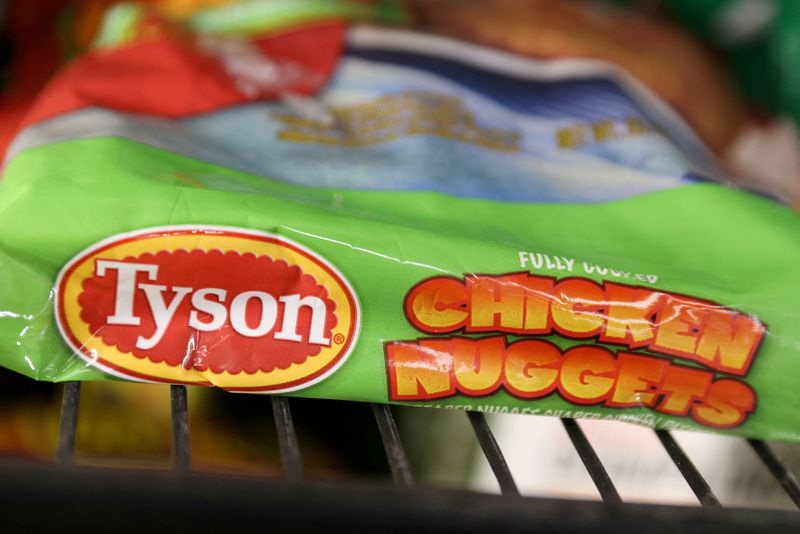Tyson Foods tops quarterly estimates as demand rebounds, costs begin to fall

(Reuters) -Tyson Foods surpassed Wall Street expectations for third-quarter revenue and profit on Monday, indicating that demand was rebounding for its meat products, while lower grain prices reduced costs for animal feed.
After sales declined in 2023, Tyson Foods (NYSE:) is now starting to see some of its customers return to stores to purchase its products as higher costs of dining out push people to cook more meals at home.
The U.S. meat packer’s net sales rose 1.6% to $13.35 billion in the quarter, compared with analysts’ estimates of $13.24 billion. It continues to expect full-year revenue to be flat compared to fiscal 2023.
The company’s beef segment – its largest – saw volumes up 4.4%, building on the last quarter’s growth of 2.8% that was driven by higher average carcass weights. Prices in the segment also rose to 1.4% as it continued to grapple with limited cattle supply.
Still, sales in Tyson’s chicken segment – which struggled with an excess of supply during 2023 – were down 3.2% in the quarter, while prices also dropped 3.7%. Previously, Tyson said it had lowered production to align its supplies with consumer demand.
Similarly, while its pork segment reported a 10.4% rise in quarterly sales, its volumes increased only by 1.2% that were sequentially lower than 2.9% seen in the second quarter, when the company saw more hog supplies.
Meanwhile, Tyson Foods has also undertaken a vigorous cost-control plan under which it has sold off a poultry facility, shuttered six U.S. chicken plants, said it would close a pork plant and had cut jobs to grow profit margins.

Lower grain prices and raw material expenses have helped Tyson Foods post adjusted earnings of 87 cents per share, topping estimates of 65 cents.
The company’s shares, which have risen nearly 14% this year, rose about 1% in premarket trade.







